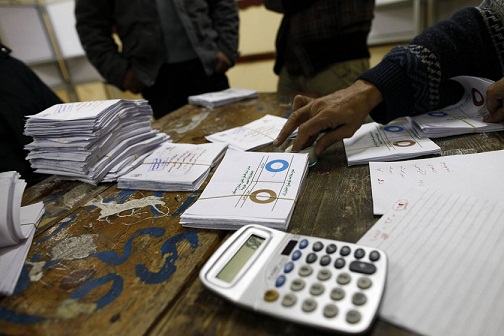CAIRO: Some 1,200 leaders from the Arab world and beyond are due in Sharm El-Sheikh this morning to kick off the World Economic Forum. Under the theme “The Promise of a New Generation, President Hosni Mubarak is due to inaugurate the summit, the first “Davos to be held in Egypt. As with previous WEF conferences, attendees will be asked to debate the issues impacting economic and political progression in the region and the world, plus topics such as reform, democracy and globalization. Certainly, there will be no loss of words where the Middle East is concerned.
The conference arrives on the coattails of several incidents spawning domestic tensions, most recently, opposition uprisings in support of two Egyptian judges who were disciplined for speaking publicly against incidents of electoral fraud. Widespread reports of violence tainted headlines as activists took to the streets in solidarity. The court appeal of El-Ghad party leader and presidential runner-up Ayman Nour would also be denied this week, meaning the opposition leader who has gained the attention of folk on Capitol Hill is spending the next five years in prison.
A number of U.S. policy makers will be in attendance. The Bush administration has boosted its regional rallies as it looks to promote ideologies of democracy and reform. U.S. Secretary of State Condoleeza Rice returned to the region earlier this year seeking support from Arab allies to cut off financial assistance a Palestinian Authority dominated by Hamas. Her plea included calls to stand against nuclear proliferation in Iran.
“We all hope that there s going to be a Middle East one day in which the security situation is such that no one has to worry about weapons of mass destruction, Rice said during a press conference in Cairo last February. “The issue right now is that Iran needs to live up to the expectations of the international community.
“Nationalist feelings of the political culture of the region are reflected in the broad sympathy on the attempt by the Iranians to develop peaceful nuclear program, says Moustafa Kamel El-Sayed, a political scientist at Cairo University. “There is condemnation on the position taken by the U.S., France, the United Kingdom who are trying to punish Iran for developing peaceful nuclear research program while at the same time not saying anything about the nuclear program of Israel.
Analysts note, however, that there is an ailing sense of pan-Arabism on the official level, leaving the region subject to Western interferences, not to mention an irritated sense of nationalism on the popular level. Mubarak, for example, received sharp criticism recently after commenting on Al-Arabiya that Iraqi Shiites are more loyal to Iran. He further added that Iraq is on the brink of civil war, a fact that most leaders have steered clear of acknowledging thus far; Western leaders because it would undermine their efforts to liberate a post-Saddam Iraq, and Arab leaders, the new Iraqi government especially, because it is desperately seeking to paint a picture for the world that the situation in the war torn nation is actually regaining civility.
“This is a bad moment for pan-Arabism, notes El-Sayed. “Arab heads of state do not attend Arab League meetings, there is no unified Arab stand. But while there is a definite Arab disunity, we must consider that one reason for the weakness at the official level is the attempt by the U.S. to subvert any common Arab stand.
The conference begins with a session geared at addressing the Arab world’s image problem. Participants will argue whether the Arab countries are doing enough, given their resources, to alleviate poverty, foster greater economic development and promote conflict resolution. The session will discuss the political, economic and cultural factors for preventing regional enhancement, and look at what Arabs abroad are doing to help.
“Poverty alleviation is a problem, though compared to other regions in the world, it’s not as crushing a problem, says Samir Radwan, managing director of the Economic Regional Forum. “But still, it is not been confronted sufficiently. There has not been a complete poverty alleviation strategy. There is the whole issue of subsidies which dominate the debate, but conscious anti-poverty strategies I have not seen.
Topics addressing regional conflict and political misunderstanding are always a major focus of the Davos conferences. Since the last meeting in Jordan, heightened sectarian tensions in Iraq have veered toward civil war; Egypt had its first multi-candidate presidential elections and the banned Muslim Brotherhood made significant gains in the People’s Assembly vote,; the first parliamentary elections in Palestine in a decade yielded a majority for the Islamic Hamas movement and the Syrian military has left Lebanon.
“The dominant trends in the region are Islamism and nationalism, adds El-Sayed. “Nationalism in the sense that people do sympathize very much with the plight of the Palestinians and are very critical of the U.S. because it’s not seen as taking an even stance. Islamism is on the rise as they represent many parties in the region and we are beginning to discover a close affiliation between Islamism and nationalism.
Building bridges of cultural understanding is also highly relevant. Earlier this year, a cartoon depiction of the Prophet Mohammed, published first in Denmark and then in dozens of newspapers worldwide, sparked anti-Western riots across the region. The Danish embassies in Beirut and Damascus were burned by angry protestors, and dozens of nations, Egypt included, boycotted Danish-made products.
“Every country has its laws and freedoms, explains El Sha’ab Editor-in-Chief, Magdy Hussein. “We can differ in our perspectives of Islam but we should not differ in our levels of freedom and respect.
“It’s a question of accepting others, having a broader outlook to people’s religions and cultures, notes Madiha El-Safty, a sociologist with the American University in Cairo. “Some people are so narrow minded and they don’t go beyond what they see their own culture or religion, but we are realizing that we need to open our eyes and understand the other cultures. That’s the world we live in.


